Leonel's weakened by corruption and Abinader emerges as the opposition's best choice
The former President leads in the first round and Abinader challenges in the second round
SANTO DOMINGO. The presidential scenario for 2016 becomes more fluid without Medina on the ticket. On a ticket without the current President, a plurality of voters (31%) would support Leonel Fernandez. Some 17% of Dominicans would support Hipolito Mejia and 14% would vote for Luis Abinader. Guillermo Moreno and Miguel Vargas Maldonado would receive 7% and 3% respectively.
Federico -Quique -Antun would attract 1% of the votes. Although he doesn't appear on the ticket, 13% of the voters volunteered that they would support Medina on the indicated scenario.
But 31% is not sufficient to push Fernandez to a first round victory. In a second round with Mejia, Fernandez has an advantage of 10 points, 47% to 37% (with 12% that say they would not vote for either of them). Abinader comes out better against the former President; in a second round of voting 46% would vote for Fernandez and 42% for Abinader (once again with a significant percentage 10%, which say they would not vote for either of them). A difference from Mejia, is that Abinader obtains more support from the small parties and wins some of the undecided votes in the second round. In this scenario, Abinader obtains 62% of the votes of Moreno (Mejia would only gather 30%); Abinader wins 28% of those that said "nobody" in the first round (Mejia would only obtain 19% of these).
In a race with many candidates without Medina, Fernandez is better positioned although he is weaker than two years ago (and when he was previously on the ticket). His favorable ratings are also going down: now just 28% of Dominicans look favorably at the former President, a fall of 17 points since 2012. A slight majority, 52%, say they approve of the work that Fernandez carried out as President, but his approval percentage when he left the presidency in May 2012 was 66%, so the 52% represents a fall of 14%.
The survey suggests that corruption is not favoring Fernandez. Corruption is one of the principle preoccupations: 35% of Dominicans consider it to be one of the top two priorities that are most important (only unemployment surpasses it), and has increased by 14 points since the 2012 elections. At the present time 82% say that corruption is getting worse. Of the national leaders, more Dominicans say that Fernandez is corrupt: nearly half, 48%, say that "corrupt" is the word that best describes him, which is over the 25% that indicate Mejia and 7% that say that Miguel Vargas is more corrupt (only 1% say that Medina is corrupt).
And Fernandez's weakness exists even in his own party. Among those that identify themselves as members of the PLD, a third say that Fernandez is the most corrupt. His favorable ratings have fallen more among the PLD voters than among other groups: among PLD members his favorability rating has fallen 38 points, from 79% favorable to just 41% favorable now. Among those that voted for Medina in 2012, the approval rating of Fernandez fell from 80% to 41%.
"Fernandez has been weakened especially by the accusations of corruption," notes Jessica Reiss, "but he cannot be discarded." A plurality of voters sees him as the strongest leader among the national figures (39%, compared with 28% for Medina and 15% for Mejia). And the voters recall with affection his creation of the Solidarity card: 60% say that this is the best reason to support him.
Danilo cannot claim victory
SD. The survey clearly shows that if the elections were held today and if Medina was on the ticket, he would be reelected. "But Medina also has his weaknesses," warns Reiss, "and two years is a lot of time."
In spite of the high approval levels of the President, a majority say that the country is going in the wrong direction. Only 37% say that things are going along the right road, while 56% say that things are going along the wrong route.
Medina is vulnerable regarding the economy. Some 60% of Dominicans say that the economy is getting worse (including 50% of the PLD party members). Unemployment is at the heart of this. About 47% say that unemployment is one of the two principle worries, more than in 2012, and two thirds say that the employment situation in the country is getting worse.
The cost of living is also one of the principle worries. There are 53% who said that their personal financial situation is getting worse and a strong majority, 76%, says that the cost of living in the country is getting worse.
Crime, although it has fallen as a worry since 2012, also weighs on the minds of the voters. More than eight of each 10 Dominicans (82%), say that crime is getting worse.
The information suggests that the voters have certain hopes that Medina will improve these issues. Of all of the national leaders, 57% indicate Medina as capable of improving the economy (above the 10% that indicate Mejia and the 9% that indicate Fernandez), and another 56% say that Medina can create more jobs and 58% that he will combat crime even better. But these numbers are lukewarm compared with the percentages that would reelect him (65%), those which give him a favorable rating (67%) and those that approve the work that he is doing as President (91%).
"He is very strong now, but those internal numbers suggest that Medina could be vulnerable in a real campaign," says Reiss. "This perhaps will create space for another candidate to level strong criticisms against Medina on the issues of crime and the economy. This would be hard for Fernandez, but the candidates of the PRD/PRM could capitalize on these weaknesses."
Data sheet
Greenberg Quinlan Rosner Research, an international polling firm, with headquarters in Washington, D. C., in the United States, and offices throughout the world, conducted and analyzed the survey for Diario Libre. There were 846 Dominican adults, all probable voters, interviewed. The survey was carried out from 12 until 16 October 2014. The margin of error is more or less 3.4% with a confidence level of 95%.

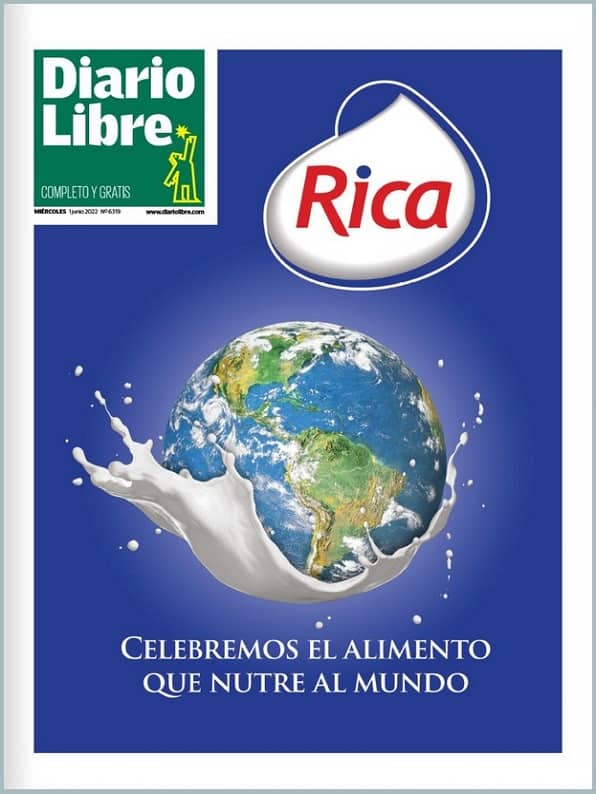
 Diario Libre
Diario Libre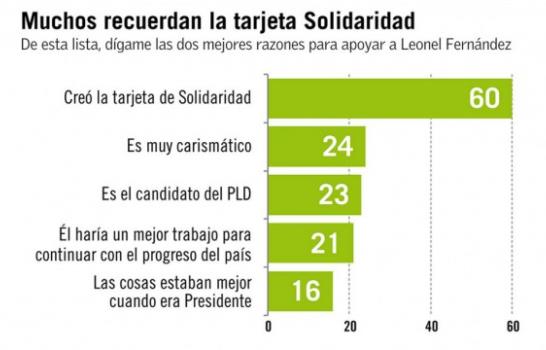
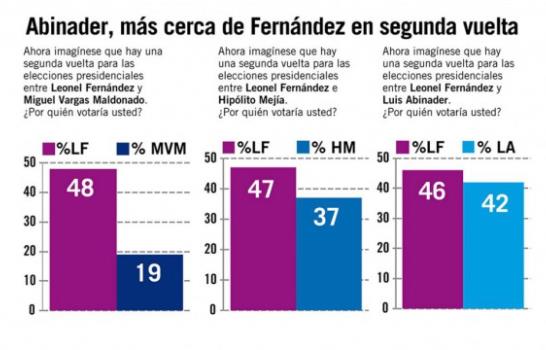
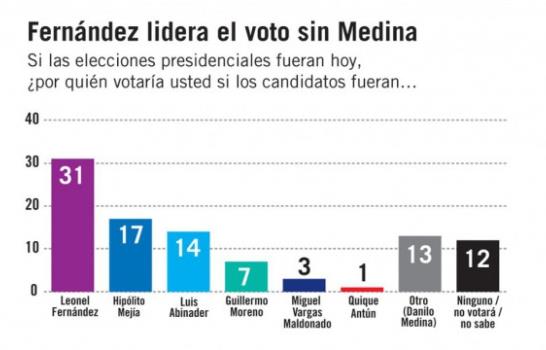
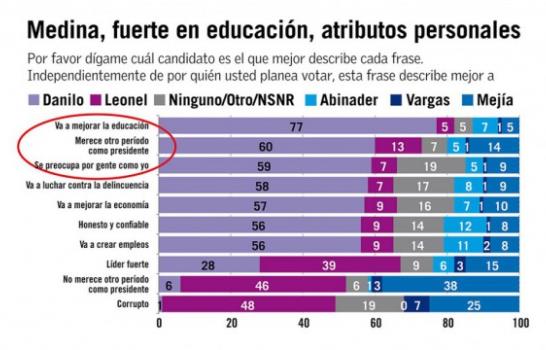
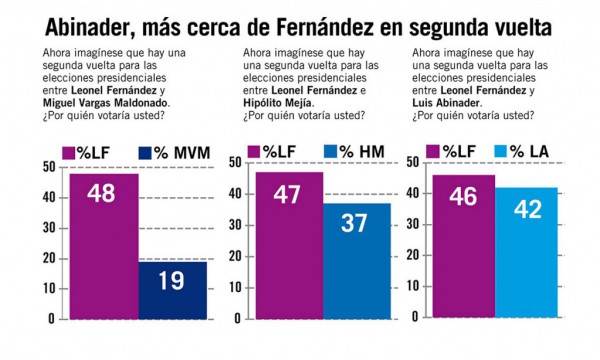
 Diario Libre
Diario Libre